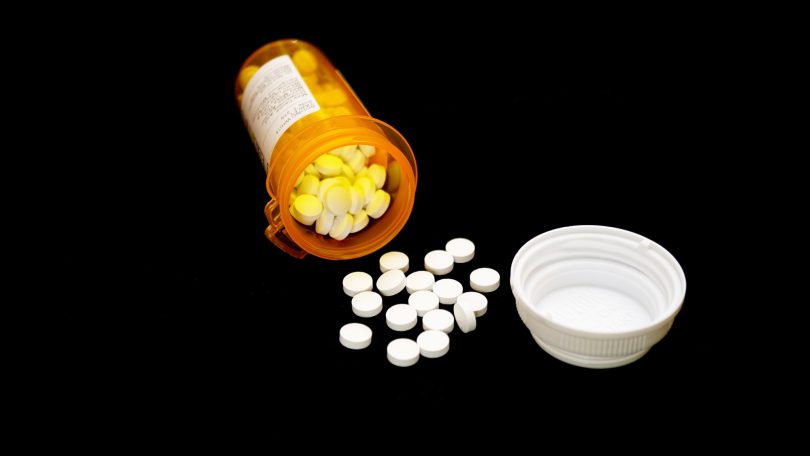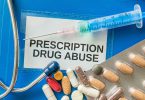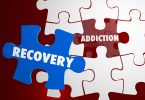Did you know that drug use is responsible for millions of deaths each year? Millions of adults are battling with a substance disorder.
Nearly 74% of adults who suffer from substance use disorder also struggle with alcohol use disorder.
This is a significant problem that is costing society billions of dollars annually in lost workplace productivity, crime-related costs, and healthcare expenses.
Here is everything you need to know about the signs of drug addiction. Then you can feel more motivated to get sober through addiction recovery.
Signs of Drug Addiction
Remember that not every addiction looks the same. Media representations have painted a lot of misleading characters when they show a person suffering from substance abuse disorder.
However, they do not show a person’s actions and behaviors accurately. People often do not acknowledge that they have a drug addiction problem.
1. Small Physical Symptoms
One of the best ways to identify drug addiction is by looking at a person’s small physical symptoms. For instance, they may be suffering from side effects like red or bloodshot eyes that can pinpoint dilated pupils.
This happens when someone is under the influence of drugs.
However, some of the most important signs of addiction are the ones many people miss. For instance, a person suffering from drug abuse may have persistent itching in specific areas of their body.
They may also impulsively pull down their sleeves to hide their drug abuse. They may also frequently sniffle even when it is not cold.
They could also have slurred speech. These are small physical symptoms to watch out for if you want to know whether something is wrong.
2. Appearance Changes
Long-term abuse of alcohol and drugs can lead to drastic changes in a person’s physical appearance. This is because many drugs can suppress a person’s appetite while also causing other side effects.
If you see someone who has suddenly lost a lot of weight and has red eyes and looks different, it may be a sign that they are struggling with drug use.
Rapid changes to someone’s body composition, like sudden weight gain or loss, and a lack of interest in personal grooming can point to substance abuse and be a cause for concern.
3. Drug Paraphernalia
The most obvious indicator of drug use is walking into someone’s room and finding things like pipes, syringes, cut-up straws, burnt spoons, and cutting surfaces like glass or mirrors. Not all drugs require anything to use them.
For instance, you can easily smoke something with some rolling paper instead of any other paraphernalia. However, you should keep your eyes peeled to notice anything like medicine bottles from multiple doctors.
This means that the person with the bottles may be abusing prescription drugs. Some people can also use eyewash to hide their bloodshot eyes.
Even though this is not a definite indicator, a large amount of eyewash can be worrying.
Remember that someone struggling with drug addiction can go to great lengths to hide their physical symptoms, so you should be more alert around them to notice the signs.
4. Sleep Habits
Drug abuse can wreak havoc on a person’s sleep habits. This is because both depressants and stimulants in drugs can alter the activity of someone’s hormones.
These hormones are ultimately responsible for wakefulness or tiredness. So, if a person is abusing drugs, they will ruin their sleep patterns and go off their typical schedule.
Staying up for extended periods or sleeping too much can be a sign of growing chemical dependence, especially if the person is someone who used to always go to bed on time.
5. Mood Swings
Many substances, when used heavily, can impair a person’s ability to manage emotional input. This can appear as extreme upset, sudden misery, anger, and irritation in situations where someone may have had it easy to maintain their cool.
If a calm person you have known suddenly acts like they cannot handle their moods well, they could be struggling with drug use.
Check to see if they become manic or hyper and deal with sudden waves of depression. Then you should calmly sit down and talk to them, offering your support if they need to discuss their secret.
6. Loss of Interest
Substance dependency can take over someone’s brain’s reward system. So, if you notice someone becoming complacent in areas that they used to take pride in.
Have they become apathetic towards people and hobbies they used to love? This can mean the person struggling is funneling all their energy towards using drugs and feeling impulses.
Then they may suddenly fail to show up or follow through with plans. You may also notice that they lack enthusiasm and maybe dull their talents because they no longer care.
This can be dangerous because a person suffering from addiction problems can jeopardize their career by no longer showing up to work on time.
7. Struggling with Limits
Do you know someone or have problems taking prescription drugs at a higher dose? If you feel tempted to take a higher dose than prescribed by a doctor after your treatment has ended, you may fall into addiction problems.
Never take a dose that is not recommended by a healthcare expert. It also helps to have a loved one monitor prescriptions because addiction makes it challenging to follow self-prescribed rules.
If you have set yourself a self-imposed limit and cannot stop yourself or have a friend you are concerned about, it is time to get professional support to get your life back on track.
Otherwise, you may spiral and go down a painful path if you are not careful with prescription drugs.
Start Addiction Recovery Today
Now that you know the top signs of drug addiction to look out for, it is time to reach out to an intervention specialist. Remember that addiction is difficult to talk about, even with those you feel very close to.
Contact us today to help you find the best treatment facility near you to get the support and compassion you and your loved ones deserve.
















